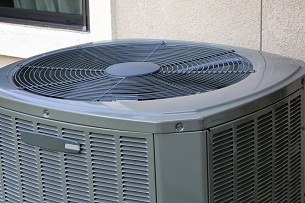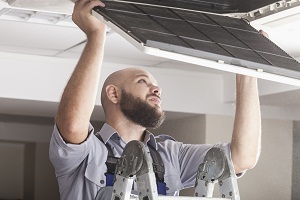
Upgrade Your Equipment
If your HVAC system is old and using out-of-date technology, the best thing you can do is replace it. Upgrading to a new energy efficient model may cost more up-front, but it will save you money in the long run. Be sure to look for the EnergyStar logo when buying your new equipment so you can be sure it is energy efficient.
Programmable Thermostat
You can also save money by purchasing and installing a programmable thermostat. This way, you can pre-set the temperature around the schedule of the people in your home. After all, there’s no point in having the heat turned up to 76 degrees Fahrenheit if nobody is home. By using the set-it-and-forget-it method, you won’t even have to think about the thermostat and you can still save money.
Clear the Vents
Your HVAC system won’t work very well if the vents are blocked. Re-arrange the furniture in the room to ensure nothing is blocking the air vents and ducts. You should also clean the air ducts regularly, as dust and debris can negatively impact its efficiency as well. Taking these simple steps will help preserve the airflow in your home.
Adjust the Temperature

Improve the Home’s Insulation
You can also ensure your system is working efficiently by improving the home’s insulation. Poorly insulated homes lose more hot air in the winter and cold air in the summer, which means it will cost you more to keep your home at a comfortable temperature. Add insulation to your walls and windows, as well as around outlets, pipes, and ducts. Pay close attention to the attic and basement, as these spots are usually where homes lose the most heat or cold.
Change the Air Filter
This is a simple maintenance task that can make a significant difference. Air filters that are loaded with dust and debris will block the air from entering your home. Your system will run for longer and use more power to make your home comfortable. Be sure to clean dust out of the air filter every so often to keep your system functioning properly. You should also hire a professional to inspect the system every year and make sure it is as energy efficient as possible.




Leave a Reply